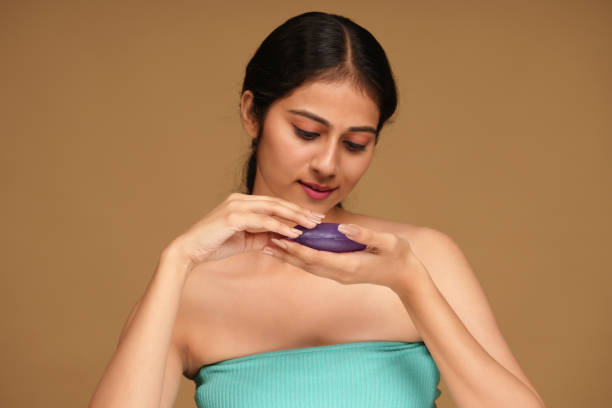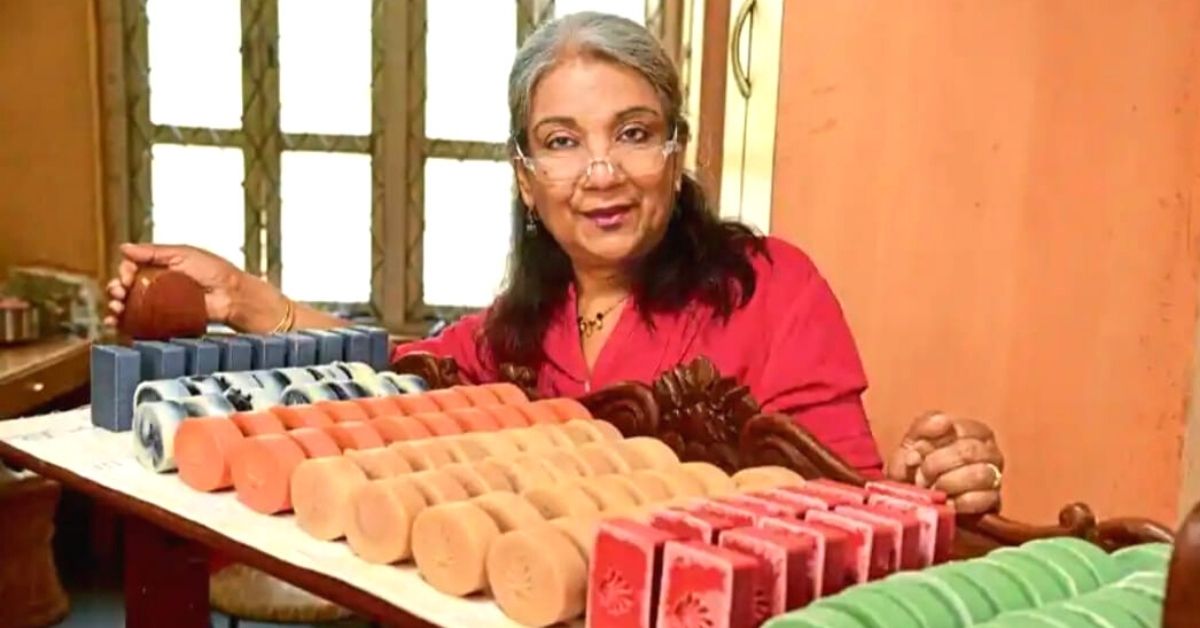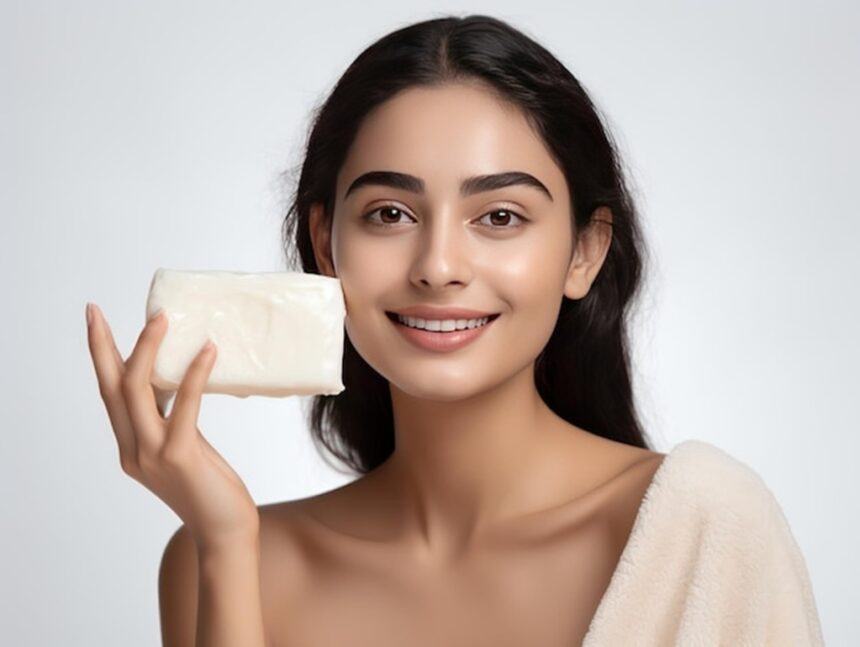MUMBAI – In India, skincare is more than a routine—it’s a ritual, a cultural cornerstone woven into the fabric of daily life. For women across the country, from bustling urban centers to serene rural landscapes, soap is a cherished ally in the pursuit of radiant, healthy skin.
The fascination with soap transcends mere cleansing; it’s about transformation, confidence, and embracing beauty in all its forms.
Among the myriad options available, Kozicare Skin Lightening Soap, Keto Soap, Pears Soap, and ketoconazole-based soaps have captured the hearts of Indian women, each offering unique benefits tailored to diverse skincare needs.
This article explores why these soaps have become staples in Indian bathrooms and how they cater to the aspirations of women seeking glowing, flawless skin.
The Cultural Context of Soap in India
Skincare and soap in India are steeped in tradition, with natural ingredients like turmeric, sandalwood, and neem long revered for their healing and beautifying properties. However, modern Indian women are embracing a blend of tradition and innovation, seeking products that align with their fast-paced lifestyles while delivering tangible results. Soap, as a daily-use product, holds a special place in this narrative.
It’s affordable, accessible, and versatile, making it a go-to for women across socioeconomic backgrounds. The obsession with soap reflects a broader desire for self-care, where cleansing becomes an act of empowerment and self-expression.
Indian women are discerning consumers, often prioritizing products that address specific concerns like hyperpigmentation, fungal infections, dryness, or aging. The soaps in focus—Kozicare, Keto, Pears, and ketoconazole-based variants—stand out for their targeted formulations, promising everything from brightening and hydration to antifungal relief.
Let’s delve into what makes each of these soaps a favourite and how they cater to the unique needs of Indian women.
Kozicare Skin Lightening Soap: The Glow-Enhancing Favourite
Kozicare Skin Lightening Soap has become a sensation among Indian women, particularly those seeking a brighter, more even complexion. Formulated with potent ingredients like kojic acid, glutathione, and vitamin C, Kozicare promises to tackle dark spots, hyperpigmentation, and sun-induced tanning.
These ingredients work synergistically: kojic acid inhibits melanin production, glutathione neutralizes free radicals for a radiant glow, and vitamin C boosts collagen synthesis, promoting firmer skin.
For many Indian women, hyperpigmentation is a common concern due to prolonged sun exposure and genetic predispositions. Kozicare’s appeal lies in its ability to deliver gradual, noticeable brightening without harsh chemicals.
It’s paraben-free, sulphate-free, and cruelty-free, making it suitable for daily use on both face and body. Women report that consistent use—twice daily, as recommended—results in a smoother, more luminous complexion, often within weeks.
The soap’s sunscreen protection is an added boon in India’s tropical climate, shielding skin from harmful UV rays that exacerbate darkening.
Beyond its functional benefits, Kozicare resonates with women who aspire to a radiant, youthful appearance. Its gentle exfoliation removes dead skin cells, enhancing cell turnover and leaving skin soft and hydrated.
Reviews on platforms like Amazon and Reddit highlight its mild fragrance and non-drying formula, making it a versatile choice for all skin types, including sensitive skin. However, users are advised to perform a patch test and pair the soap with a broad-spectrum sunscreen to mitigate kojic acid’s potential to increase sun sensitivity.

Keto Soap and Ketoconazole Soaps: The Antifungal Champions
For women battling fungal skin infections, Keto Soap and other ketoconazole-based soaps are game-changers. These medicated soaps, containing 2% ketoconazole, are designed to treat conditions like ringworm, athlete’s foot, jock itch, and dandruff.
Ketoconazole works by disrupting fungal cell membranes, effectively killing fungi and alleviating symptoms like itching, redness, and flaking.
In India, where humid climates and crowded urban environments can exacerbate fungal infections, ketoconazole soaps are a practical solution. Women appreciate their ability to address not just body infections but also scalp issues like seborrheic dermatitis.
Keto Soap, available in 50g and 100g bars, is praised for its affordability and accessibility, often available over-the-counter at pharmacies like Apollo. Its gentle formulation ensures it cleanses without stripping the skin’s natural moisture, making it suitable for regular use under medical guidance.
The appeal of ketoconazole soaps extends beyond treatment to prevention. Women in India, particularly those in coastal or monsoon-prone regions, use these soaps to maintain skin hygiene and prevent recurring infections.
However, caution is advised: overuse can increase the risk of side effects like dryness or irritation, and pregnant or breastfeeding women should consult a doctor before use. The soap’s medicinal scent and straightforward efficacy make it a trusted choice for women prioritizing health over aesthetics, though many report improved skin clarity as a bonus.

Pears Soap: The Timeless Classic
Pears Soap, with its iconic amber glow, holds a nostalgic place in Indian households. Introduced in the 18th century, it remains a beloved choice for its simplicity and gentleness.
Formulated with glycerin and natural oils, Pears is renowned for its moisturizing properties, making it ideal for women with dry or sensitive skin. Unlike many modern soaps, Pears avoids harsh chemicals, offering a hypoallergenic option that cleanses without irritation.
For Indian women, Pears is a reliable daily cleanser that maintains the skin’s natural moisture barrier. Its translucent formula and mild fragrance evoke a sense of purity and tradition, appealing to those who value heritage in their skincare.
Pears are particularly popular in winter months, when dry skin is a common complaint, as they leave skin soft and supple without a greasy residue. Its affordability and widespread availability further cement its status as a household staple.
While Pears doesn’t boast the advanced ingredients of Kozicare or the medicinal prowess of ketoconazole soaps, its enduring popularity lies in its versatility. Women of all ages use it for face and body, appreciating its gentle cleansing action that suits even the most sensitive skin. In a market flooded with high-tech skincare, Pears remains a comforting constant, embodying the adage that sometimes, less is more.

Why the Obsession?
The obsession with these soaps stems from their ability to address specific skincare concerns while fitting seamlessly into daily routines. Kozicare caters to the desire for radiant, even-toned skin, aligning with cultural ideals of beauty that prioritize clarity and glow.
Keto and ketoconazole soaps offer practical relief from fungal infections, a common issue in India’s climate, empowering women to feel confident in their skin. Pears, with its timeless appeal, provides a gentle, reliable option for those seeking simplicity and hydration.
Social media platforms like Reddit and Quora amplify this fascination, with Indian women sharing reviews, routines, and before-and-after stories. The accessibility of these soaps—available at pharmacies, e-commerce platforms like Amazon, and local stores—makes them attainable for women across urban and rural divides.
Their affordability, compared to serums or creams, further fuels their popularity, democratizing skincare in a country where beauty is both a personal and cultural aspiration.
Considerations and Best Practices
While these soaps offer significant benefits, proper use is key to maximizing results and minimizing risks. Kozicare users should pair the soap with a moisturizer and sunscreen to enhance hydration and protect against UV damage.
Ketoconazole soaps require medical guidance for prolonged use to avoid side effects like dryness or allergic reactions. Pears, while gentle, may not suffice for women with specific concerns like hyperpigmentation or fungal infections, necessitating complementary products.
Patch tests are recommended for all soaps, especially for sensitive skin, to rule out adverse reactions. Women should also consult dermatologists if incorporating these soaps into complex skincare routines, particularly if using other actives like retinols or acids. Consistency is crucial—whether it’s Kozicare’s twice-daily regimen or Keto’s targeted application, following instructions ensures optimal outcomes.
Conclusion
The obsession with soaps like Kozicare, Keto, Pears, and ketoconazole-based variants reflects Indian women’s deep-rooted commitment to skincare as an act of self-care and empowerment. Kozicare promises a radiant glow, Keto and ketoconazole soaps deliver relief from fungal woes, and Pears offers timeless hydration.
Together, they cater to diverse needs, from aesthetic aspirations to health-driven necessities. As Indian women continue to embrace both tradition and innovation, these soaps remain steadfast companions in their journey toward confident, beautiful skin.














